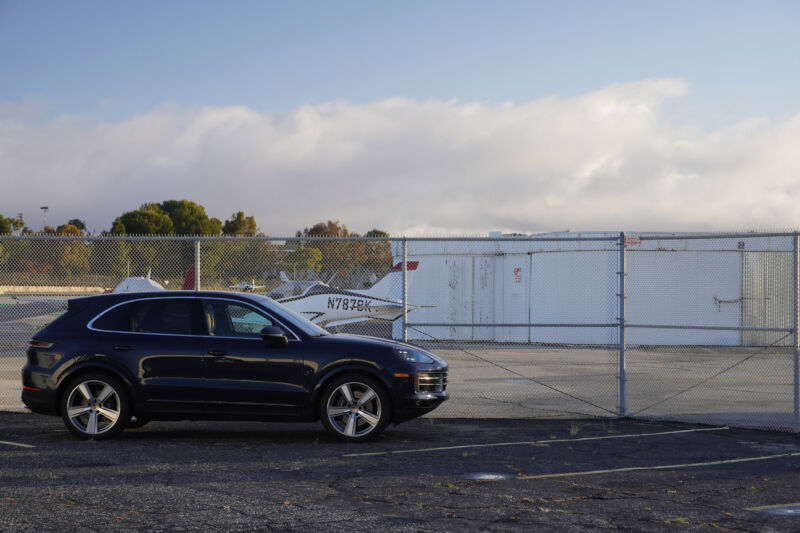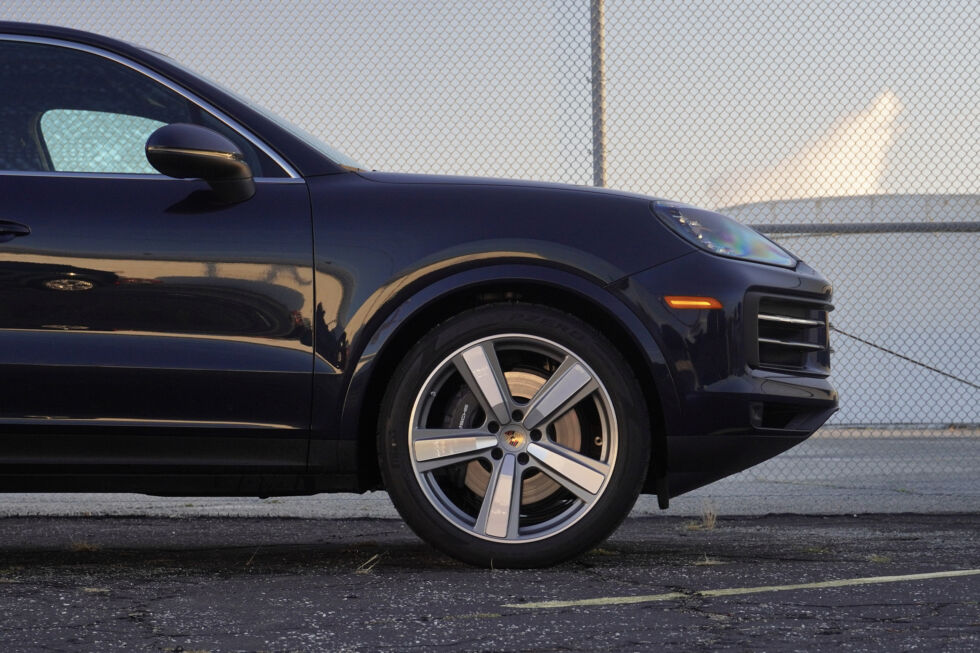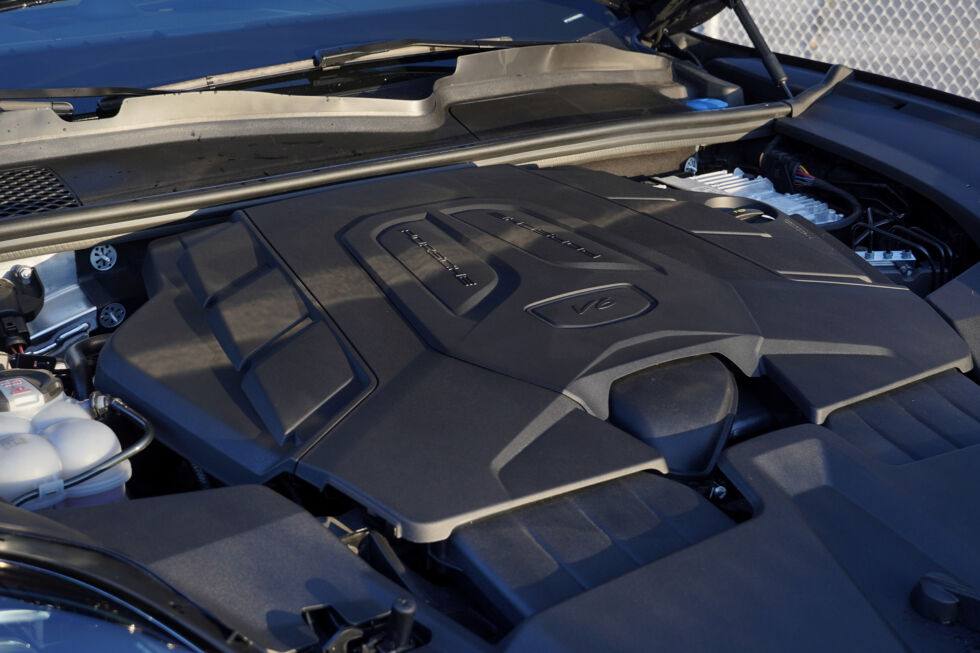slightly spicy SUV —
Sometimes a simple spec without all the bells and whistles is the way to go.

Enlarge / It’s all too easy to go nuts with the Porsche option list and spend a fortune, but what if you didn’t do that?
Michael Teo Van Runkle
Porsche’s high-performance variants of the 911 might make for great headlines, proving the incredible potential of the world’s most iconic rear-engined sports car to serve as a track toy and off-road rally racer simultaneously. But while motorsport heritage always factors into any Porsche conversation, the 911 is anything but the top rung of the company’s sales ladder. Instead, the Cayenne and then Macan SUVs have led the pack in volume since 2002, bolstering the company’s financial position and allowing the smaller-scale 911s and 718s to continue production.
For model year 2024, the facelifted third-gen Cayenne now comes in seven trim levels, including the technologically advanced and startlingly quick Turbo E-Hybrid, which offers 35 miles of all-electric range and a 3.5-second sprint to 60 mph. And yet a base V6 Cayenne offers a far more attainable entree into what it’s like to own something other than a fully loaded, paint-to-sample uber-Porsche that can easily cost well over $200,000.
Revisiting the Cayenne SUV
A V6-powered Cayenne starts at $79,200, or almost $20,000 more than the smaller gasoline-powered Macan crossover. But the larger platform allows for a more refined vision of Porsche luxury on the interior, with more headroom, legroom, and cargo capacity. Despite the additional size, however, the latest iteration of the Cayenne never sacrifices the spirit that originally put the Sport in Sport Utility Vehicle. And even a small-displacement turbo V6 still delivers the highlights of Porsche performance, engineering, and reliability.

Enlarge / Porsche hasn’t announced a replacement for the Cayenne yet, but we bet it will be electric.
Michael Teo Van Runkle
I took this 2024 Cayenne for a week loan in Los Angeles six months after selling my own 2006 Cayenne Turbo. Half a year without a Stuttgart SUV serving as my daily driver never dampened the impressions that originally inspired my purchase of a high-mileage Typ 955, though—especially that burly 4.5 L twin-turbo V8 pumping out 450 hp (335 kW) and 457 lb-ft (620 Nm) of torque. With a stout Aisin six-speed automatic transmission, 18-inch wheels shod in big knobby tires, and an adjustable air suspension system, my Cayenne Turbo handled far more difficult off-roading trails than I ever expected, all while still being able to cruise home on the freeway at with equal aplomb.
Since that undeniably over-engineered first generation—split between the 955 and later the 957 facelift—the Cayenne has evolved into a leaner, more consumer-focused SUV. The next generation, known as the 958, dropped the two-speed transfer case, locking differentials, and electronically disconnecting sway bars from the platform. With less truck-iness baked in, second and now third-gen (Typ 9Y0) Cayennes nail the sporty side even more effectively.
The biggest difference comes down to sheer weight. Without the substantial heft of a more complex driveline and powered by smaller displacement engine options throughout the lineup, the current Cayenne now tips the scales at 4,678 lbs (2,122 kg). Compare that to my Turbo, at 5,200 lbs (2,359 kg) before I bolted on steel skid plates, a swingout rear spare carrier, and bigger tires, and the difference in horsepower stats versus the V6-powered base Cayenne starts to seem less significant.

Enlarge / There’s not much to see under the hood.
Michael Teo Van Runkle
The single-turbo V6 receives ratings of 348 hp (260 KW) and 368 lb-ft (500 Nm) of torque, though the latter figure peaks at just 1,450 rpm and explains the ability for a full-size SUV to manage a 0–60 time of just 5.4 seconds when equipped with the Sport Plus package and Launch Control. That’s a long way off from a Turbo GT, sure, but it’s better than the V6’s raw specs on paper perhaps suggest.